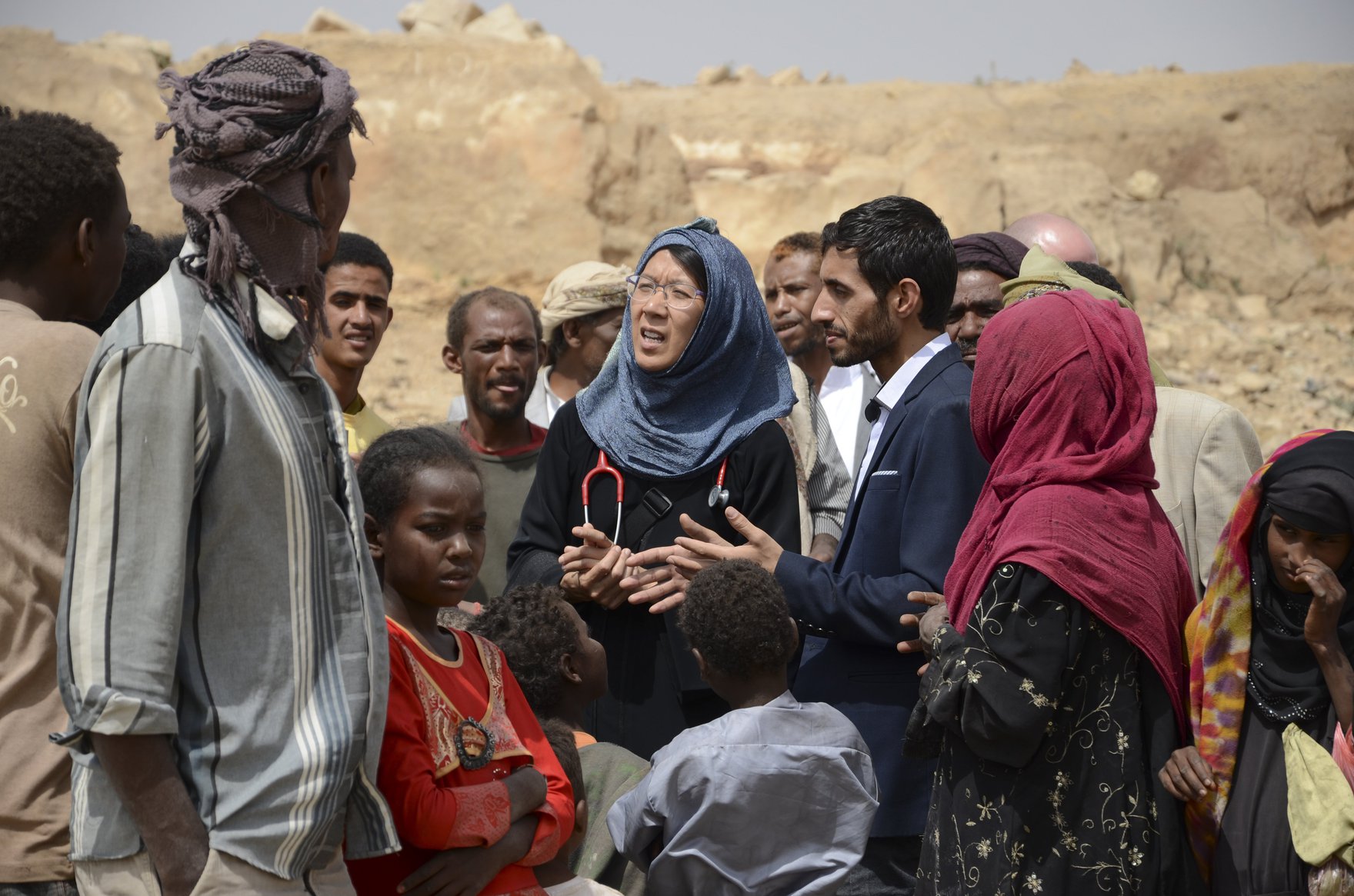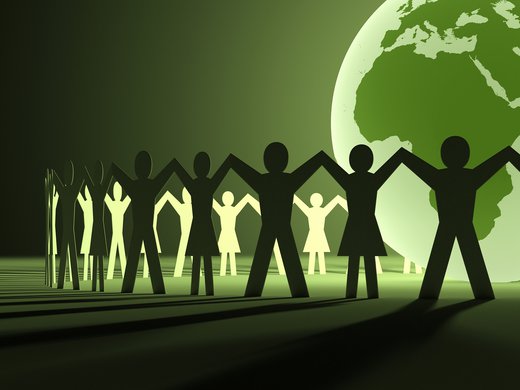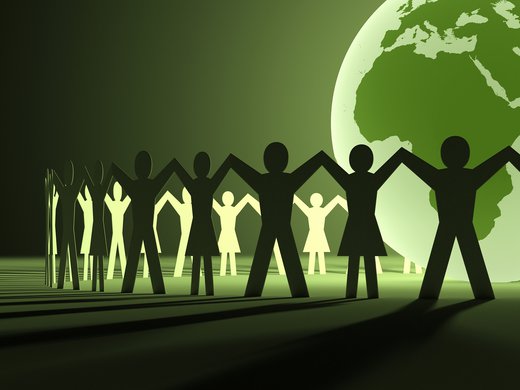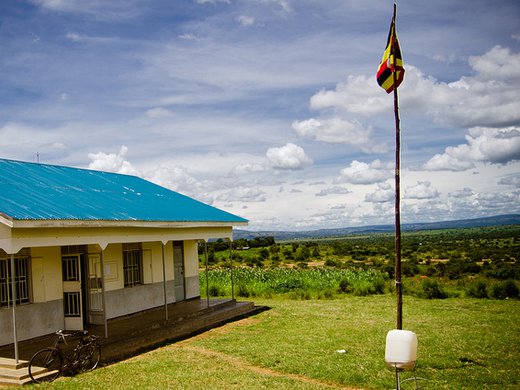Doctors Without Borders/Médecins Sans Frontières (MSF) is known for its humanitarian response to conflicts, natural disasters and epidemics around the world — its physicians and emergency medical teams work in close to 70 countries, from Afghanistan to Zimbabwe. But there is another side to MSF’s mandate, and that is témoignage — the responsibility to bear witness to crises and speak out about the human suffering inflicted on so many by war, poverty and disease.
MSF’s international president, Joanne Liu, embodies the organization’s mission. Involved with MSF since 1996, Liu has been at its head since 2013. Over the last four years she has made a point of raising her voice, often at the highest echelons of power, to highlight the plight of the world’s most vulnerable.
In her current role, she has been particularly struck by the sense that the old rules of engagement meant to protect humanitarian workers no longer apply. Following the 2015 attack on MSF’s trauma centre in Kunduz, Afghanistan, and the 2016 destruction of the MSF-supported Al Quds hospital in Aleppo, Syria, Liu told the United Nations Security Council in no uncertain terms: “Make no mistake: we will relentlessly denounce attacks on healthcare. We will speak out loudly and with force about what we witness in the field. Medicine must not be a deadly occupation. Patients must not be attacked or slaughtered in their beds.”
Born and raised in suburban Quebec City, Liu has worked in Kenya, the Democratic Republic of Congo, Honduras, Haiti, Ethiopia, Nigeria, Indonesia, the Palestinian Territories, Uganda, Sudan and Sri Lanka. In 2015, she was named one of Time’s 100 most influential people, for her leadership of MSF during its response to the Ebola crisis in West Africa.
Ahead of International Women’s Day, Liu spoke from the Greek island of Samos on the changing nature of conflicts, the challenges for women working in the humanitarian sector and why she is more amenable to media requests now than she used to be.
1. What have been the most challenging aspects of your role as international president over the past four years?
Over the past year, the political landscape has created a lot of uncertainty. What I find the most difficult is the fact that we are basically today in a dynamic of denying what I call our collective commitment, or our ideals of solidarity, worldwide. I’m thinking about the fact that we are not upholding our commitment to the Geneva Convention; we are not sparing civilians in wars; we are bombing schools, markets and hospitals. We are not upholding our commitment to the 1951 Refugee Convention — we’re basically not protecting refugees or giving them asylum. We created years ago the International Criminal Court, but countries are pulling out from it and it’s as if it’s a non-event. Nobody’s protesting. We are seeing today a UN Security Council that is passing resolutions but is not able to enforce or apply them.
For me, the difficult and at times risky thing is to [operate] in a world that is actually giving up on the ideals of solidarity that we built together, collectively, after World War II. How do you work in this kind of environment, when all of a sudden, the rules of the game are not the same? You deploy on the front line with your team and you’re not sure that the different belligerents will respect the rules of war, meaning that patients, hospitals and medical staff might become targets.
In 2015 and 2016, there were more than 150 attacks on medical facilities supported or operated by MSF. Underlying that is what I call the “fear factor.” There’s this fear, with the war on terrorism, that the enemy seems to be everywhere, and that gives a licence to abuse, a licence to kill, and to cross red lines that used to not be crossed as often, like bombing a hospital, like not protecting a refugee.
2. In the nearly 20 years you have worked with MSF, how have both the nature of crises and the humanitarian responses to them changed?
I think that there is less war between countries but there’s much more what we call “in-country” conflicts. We went from the phenomenon of, in the past, dealing with big refugee camps, to today dealing more with internally displaced people. The figures are there: we have 65 million people in forced displacement, 20 million of them are refugees and about 40–45 million are internally displaced people. This is the type of thing we had to adapt to over the last 20 years — we had to somehow recreate our framework for attending to refugees in order to bring humanitarian aid to internally displaced people.
I also think that there are many more players than when I started. Twenty years ago, there were fewer NGOs, now there are a lot of NGOs…and many more people who want to make a career in humanitarian aid. I don’t think 20 years ago global health really existed as an undergraduate program…we [physicians] were not thinking of having a career in humanitarian aid work, that was not part of our mindset; we were doing it because we believed in it, because we were committed. Not that people nowadays are not, but for us [the career aspect] wasn’t really a factor.
3. What are the most pressing issues facing women around the world at the moment, from what you have seen?
Speaking as a medical humanitarian actor, we see in many of the conflicts where we are that one of the biggest challenges facing women in poor, low-income countries or in war or conflict zones is access to skilled birth attendants. It’s a fact that many women don’t have care before, during or after delivery, which contributes to the high maternal mortality rate around the world — whether caused by severe bleeding, infections, high blood pressure during pregnancy, complications from delivery or unsafe abortion. Every day we do thousands and thousands of deliveries; everywhere that we open a centre for delivery care, it’s always, always super attended.
Unsafe abortions remain one of the top five leading causes of maternal death, causing 13 percent of maternal deaths, so that’s still a real issue.
People do understand that investing in a mother’s health is investing in the future.
The thing is, we are convinced that access to maternal health care can be improved — but, like I always say, there’s no low-cost fare to get there. We’re talking about education, about access to health care, access to a skilled person to help with delivery…We think there is a chance for improvement, because health care system strengthening is part of the UN’s Sustainable Development Goals, and people are investing a fair amount.
We also think people do understand that investing in a mother’s health is investing in the future, because if you have a child and it doesn’t have any suffering around the delivery, it has a better chance to [succeed] in life. Because it’s all interconnected people do see the need, [but] it is a huge investment, and you need to work on many, many forefronts to make this happen. There’s no magic wand, there’s no one solution that’s going to fix everything — it just doesn’t happen overnight.
What I know, though, is that when you offer access to health care — meaning it’s free of charge or it’s accessible, affordable and sustainable — women use it. I think that [innately] mothers want to give the best to their children, and they know that if they come to places where they can have an attended delivery by a skilled person, they’re putting the odds on their side.
4. Are there particular challenges for women working in the humanitarian sector?
I think it’s a real challenge to have a family life in this type of job. Some people succeed in doing that, but it is quite challenging. Another thing is — and I’m not someone who is anxious by nature, I’m a pretty cool person, but nevertheless — sometimes when you are in war zones where there’s a lot violence, and particularly sexual and gender-based violence (SGBV), you feel vulnerable as a woman.
You cannot not be self-aware that you’re a woman in a conflict zone, and especially if you are in an environment where there’s a lot of SGBV, it sort of haunts you. I’m someone who works a lot in the Congo — it’s just there, you kind of just pretend that it doesn’t exist. I think you need to be respectful, but you find your way, and sometimes as a woman you navigate [the situation] even better.
Once I was meeting a former political leader in Quebec, and I asked him, “How did you make deals [among politicians] when you all have your positions and you just fight all the time?” He said, “Oh, it’s easy, the women of the two parties, they go out for dinner, and then the next day they come back with a solution.” He said, “They’re the ones that fix things, because us guys, with our ego and our machoism, we’re not able to get our act together.” [Laughs] I will always remember that anecdote.
5. What’s it like to be a woman in such a high-profile position?
I believe in gender balance, but I’ve never been that self-aware about my gender, because for me, when I was young anyway, the fact that I was a visible minority was a bigger issue than my gender. It’s true that you become a bit more self-aware about gender [as time progresses]. When I go to high-level meetings, I look around, and often I am with only one or two other women. You become aware of this, of course. But when I speak on behalf of MSF and patients, I just want people to pay attention to what I’m saying. I don’t think being a woman prevents me from being heard.
6. Tell me about a woman along the way that you have learned from or been inspired by?
I remember once I was at the YMCA, I had won the prize of woman of the year in humanitarian or community life, and Josée Boileau from Le Devoir had won a different prize. We all had to share a little anecdote, and she said, “I’m doing interviews and it’s always the same. You ask a guy, do you want to come on air...and the guy says yep, what time? But when you ask the best person, who knows the topic, and she’s a woman, she’s going to find all sorts of excuses for not doing it.”
I met her again over Christmas because I was invited by CBC to do an interview, and I reminded her of that. She laughed, and said, “You really got struck by that.” I said, “Yes — because of you, today I accept interviews that I used to not accept.”
Catherine Tsalikis is a Senior Editor for OpenCanada.org. Previously, she worked at CBC and CTV in Toronto, and Sky News and Chatham House in London, UK. She completed her undergraduate degree at the University of Toronto and her Master's degree at the London School of Economics



